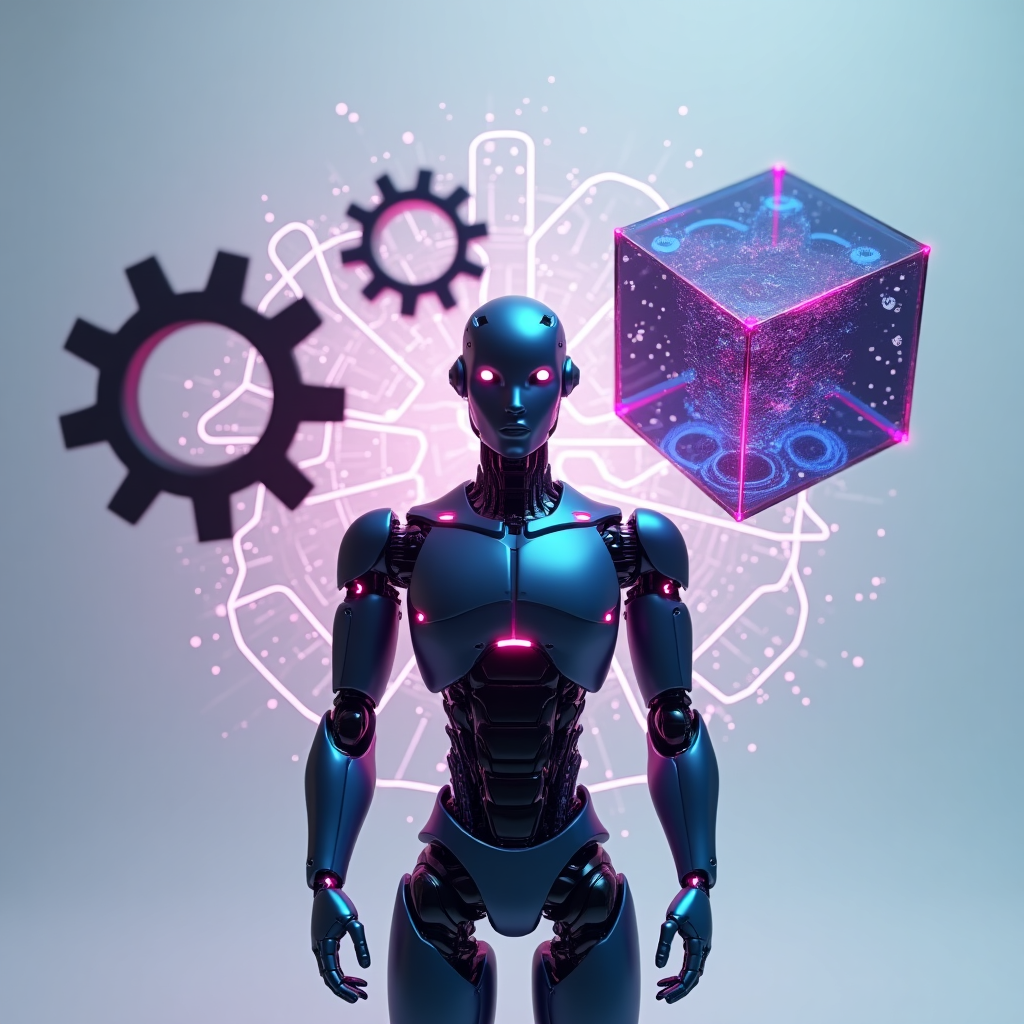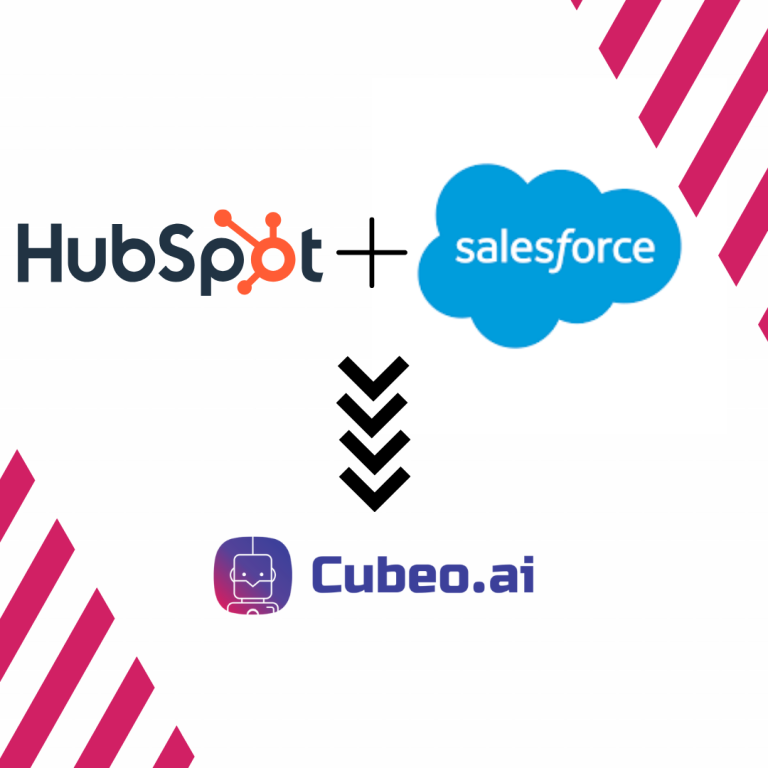Artificial Intelligence (AI) agents are transforming how businesses operate, from automating customer interactions to optimizing internal processes. Building your own AI agents might sound complex, but with the right tools and methodologies, it’s more accessible than you might think.
Whether you’re looking to enhance customer support, automate sales outreach, or develop intelligent chatbots, this comprehensive guide will walk you through the process of building AI agents.
Table Of Contents
What Are AI Agents?
AI agents are intelligent software entities that perform tasks autonomously. They can analyze data, make decisions, and interact with users, continuously learning from experience.
- Reactive Agents: Respond immediately to external stimuli without learning from past experiences.
- Model-Based Agents: Make decisions based on stored knowledge and learned data.
- Goal-Based Agents: Operate with specific objectives and plan actions accordingly.
- Utility-Based Agents: Choose actions based on potential outcomes.
- Learning Agents: Continuously adapt and evolve through data and feedback.
For a deeper understanding of AI agents and their architecture, check out AWS’s guide to AI agents.
Why Build AI Agents?
Building AI agents offers significant advantages for various industries:
- Automation: Streamline repetitive tasks, freeing human resources.
- Efficiency: Increase productivity by automating data processing and decision-making.
- Scalability: Handle thousands of interactions simultaneously.
- Personalization: Deliver customized customer experiences.
- Cost Reduction: Reduce operational costs by automating routine processes.
Explore more on how AI agents boost business efficiency in Neurond’s in-depth guide.
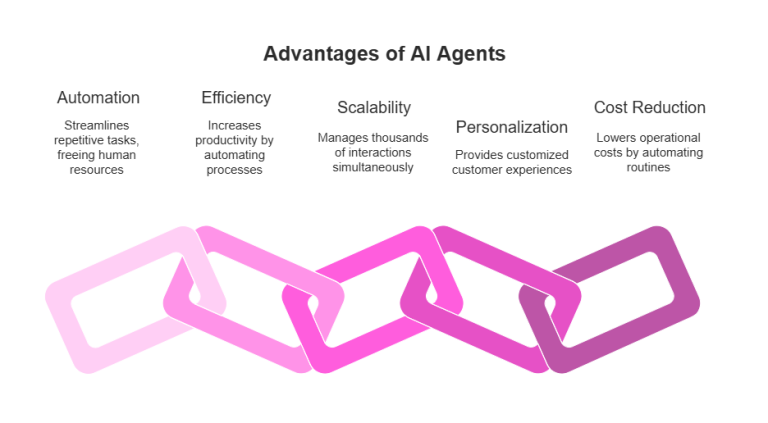
Step-by-Step Guide to Building AI Agents
Define Your Use Case
Before building an AI agent, clearly outline your objectives. Consider:
- What problem are you trying to solve?
- Who will use the AI agent?
- What data is required?
- Customer Support: Automate responses using chatbots.
- Sales Automation: Lead scoring and personalized email generation.
- Data Management: Real-time updates and data enrichment.
- Marketing Automation: Content creation and campaign monitoring.
For insights on building customer-focused AI agents, refer to Salesforce’s guide.
Data Collection and Preparation
High-quality data is the foundation of any AI agent.
- Data Sources: CRM databases, customer interactions, social media.
- Data Cleaning: Remove inconsistencies and duplicates.
- Data Formatting: Structure data using JSON, CSV, or database formats.
- Feature Engineering: Extract meaningful features to improve model accuracy.
Pro Tip: Use automated data collection tools to streamline the process. Learn how to enhance data preparation in Neurond’s data optimization guide.
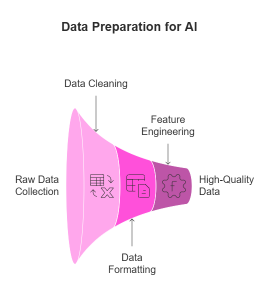
Integrate with Existing Systems
Connecting AI agents to CRM tools maximizes their impact.
- Salesforce Integration: Automate lead scoring and data updates.
- HubSpot Integration: Manage customer interactions and marketing automation.
- Slack Integration: Receive real-time notifications and updates.
- Email Automation: Draft and send personalized outreach.
For practical steps on integrating AI agents, check out Salesforce’s integration guidelines.
Real-World Example: AI Agent Built with Cubeo AI
Cubeo AI is a no-code platform designed to make AI agent creation accessible for businesses of all sizes. With drag-and-drop features, you can build custom AI agents to automate tasks without coding.
Key Features:
- Customizable AI Agents: Build tailored solutions for sales, marketing, or support.
- 24/7 Automation: Keep operations running smoothly around the clock.
- Seamless Integration: Connect with Salesforce, HubSpot, and other CRMs.
Why Cubeo AI?
Cubeo AI lowers the barrier to AI adoption, making it simple for non-technical users to implement intelligent solutions. Start building without writing a single line of code.
Challenges and Best Practices
Building AI agents is not without challenges:
- Data Quality Issues: Ensure data is clean and consistent.
- Integration Complexity: Choose tools that support API connectivity.
- Model Accuracy: Regularly update and retrain models.
- Ethical Concerns: Ensure transparent and fair AI practices.
Explore ethical considerations and AI challenges in AWS’s AI ethics overview.
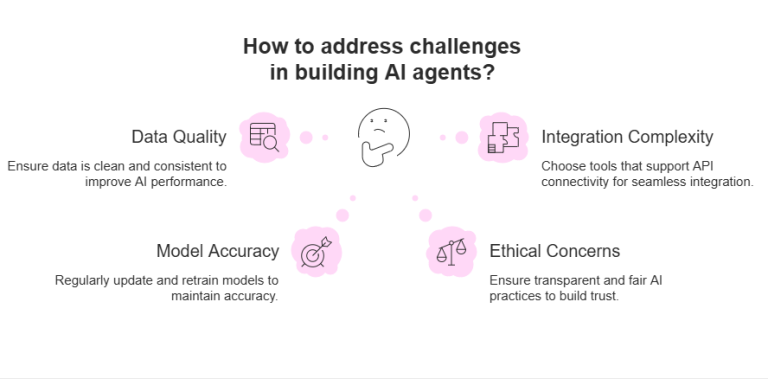
Conclusion
Building AI agents can revolutionize your business, automating critical tasks and enhancing decision-making processes. By leveraging tools like Cubeo AI, TensorFlow, and Salesforce, you can develop powerful agents that streamline operations and improve efficiency.
Ready to build your own AI agent? Sign up for a demo with Cubeo AI today and see the transformation firsthand!
